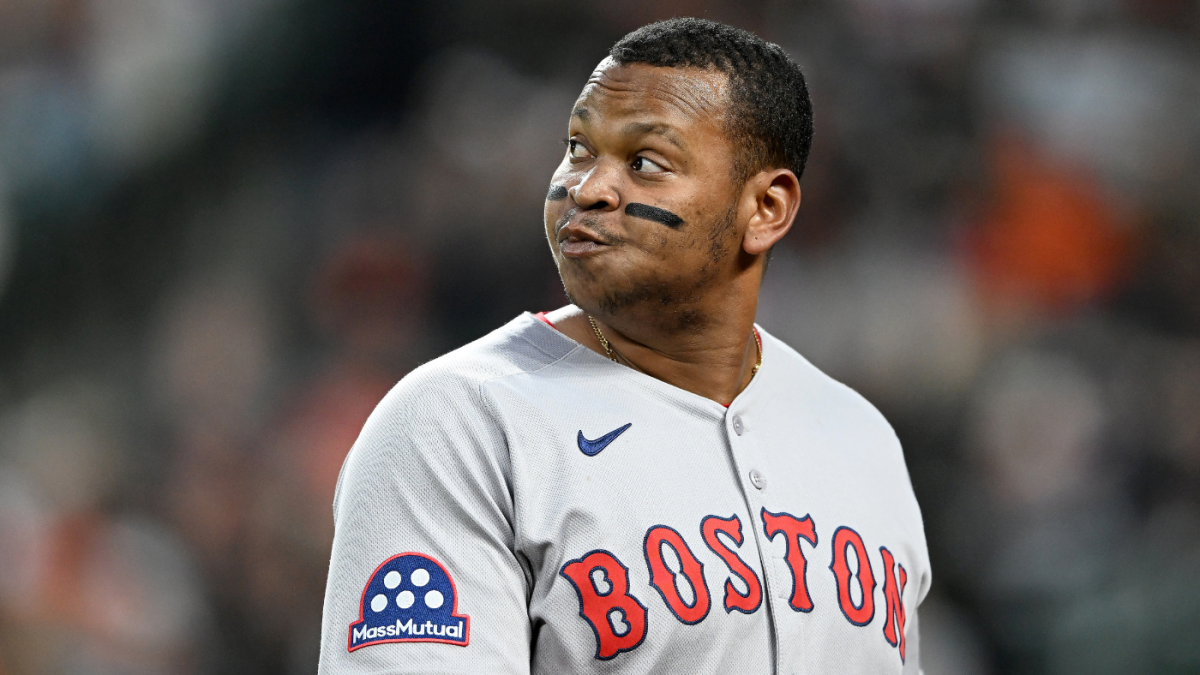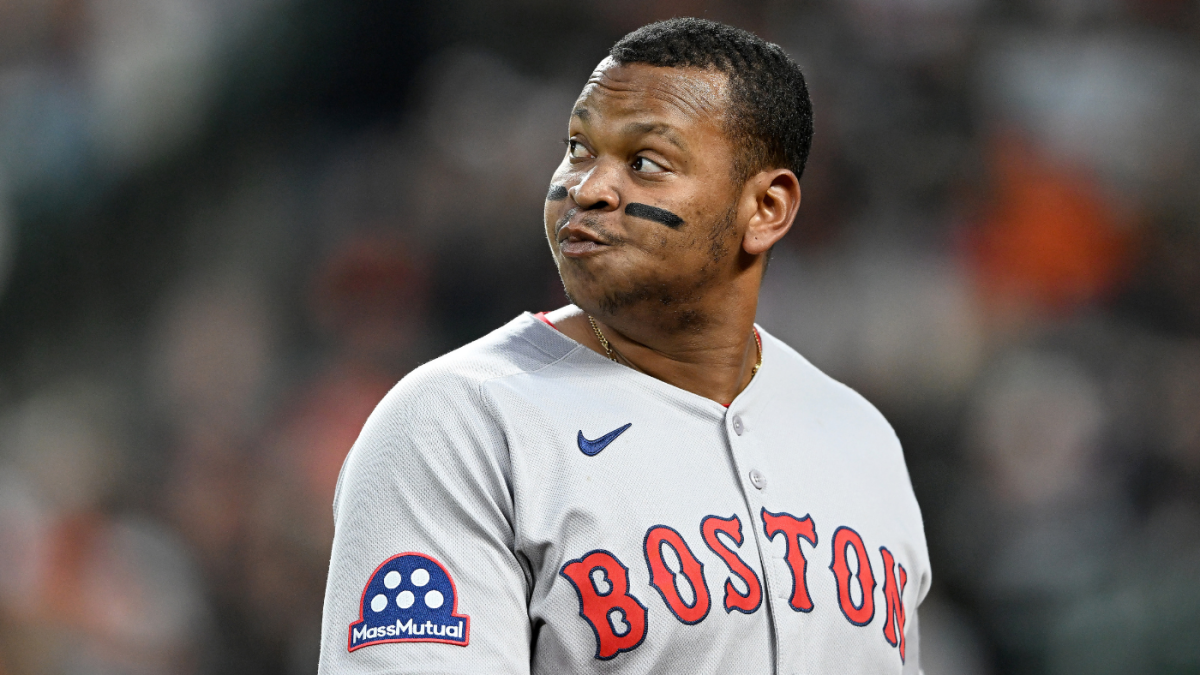Unraveling the Rafael Devers Trade: Strategy, Tension, and Transformation in Boston Baseball
The baseball world rarely experiences a trade as impactful and perplexing as the recent deal sending Rafael Devers from the Boston Red Sox to the San Francisco Giants. This transaction is a vivid example of how high-caliber talent, internal dynamics, and strategic priorities collide behind the scenes of professional sport. Exploring this trade reveals a nuanced interplay of performance, personality clashes, and the evolving philosophies governing team-building in MLB.
The Heart of Boston’s Dilemma: Devers and His Contractual Weight
Rafael Devers was more than just a player for the Red Sox — he was a franchise icon. His 2023 contract extension, valued at roughly $313.5 million, underscored Boston’s commitment to their slugging third baseman, expecting both on-field production and leadership. Devers delivered offensively, especially in the 2025 season, consistently powering the lineup with clutch hitting and run production.
Despite these obvious contributions, internal tensions simmered. What seemed like a harmonious relationship between star and team frayed primarily over positional responsibilities. Devers’ established identity at third base clashed with the front office’s desire for roster flexibility and adjustments, setting the stage for conflict.
Breaking Down the Fractures: Why Boston Opted to Trade a Star
Resistance to Position Changes
Central to the trade was Devers’ reluctance to embrace positional changes. The Red Sox sought to reshape their defensive alignment, requesting Devers to move from third base to adapt to new personnel and strategic considerations. His refusal to comply created friction, viewed by management as inflexibility incompatible with the team’s broader vision.
Perceptions of Unequal Contract Fulfillment
Beyond positional disagreements, the organization expressed broader dissatisfaction, citing that Devers failed to embody the responsibilities tied to his significant contract. This phrase veils multiple dimensions — from leadership in the clubhouse to attitude and commitment beyond statistics. The front office’s disappointment suggested a gap between expectation and reality in Devers’ role as both a performer and a team cornerstone.
Communication Breakdown and Mutual Disaffection
Efforts to resolve these tensions, including direct intervention by owner John Henry, did little to bridge the divide. The relationship deteriorated into mutual disaffection, with trust and understanding evaporating. This breakdown rendered continued cooperation untenable, catalyzing the decision to part ways.
What Boston Received: A Strategic Pivot Toward the Future
The trade package from San Francisco brought promising talent to Boston, notably pitchers Jordan Hicks and Kyle Harrison, along with minor league prospects James Tibbs and Jose Bello. This infusion signals Boston’s strategic pivot: prioritizing youth development and securing pitching depth — an area the team evidently values highly.
While Devers represented a proven offensive force, the pitchers acquired offer long-term value and potential front-line impact. This trade isn’t a mere salary dump but a calculated move towards restructuring the roster around emerging talent and flexibility.
The Baseball World Reacts: Shock, Debate, and Reflection
The timing of the trade, coming soon after Boston’s triumphant sweep of the Yankees, heightened its shock value. Fans and analysts grappled with the irony of trading a player fresh off strong performances, underscoring the depth of internal friction that transcended on-field success.
Media channels flooded with debate, balancing admiration for Devers’ talent against skepticism about Boston’s management approach. Questions about loyalty, team culture, and strategic wisdom dominated conversations, reflecting the complexities of balancing immediate wins with long-term cohesion.
What’s At Stake: Contrasting Fortunes for Giants and Red Sox
Giants’ Bold Acquisition
For San Francisco, acquiring Devers is an unequivocal gain. They secure a middle-of-the-order power hitter whose talents can redefine their offensive threat. Absorbing Devers’ hefty salary reflects their confidence in competing immediately and elevating their divisional prospects. The move heralds San Francisco’s serious intent to contend with a superstar anchoring their lineup.
Red Sox’s Crossroads
Boston’s trade signals a pivotal moment. While the boost in pitching prospects bodes well for sustainable growth, relinquishing a franchise pillar risks alienating fans and destabilizing clubhouse morale. The organization faces the daunting challenge of nurturing new talent while healing internal rifts. Success hinges on whether Boston can translate this gamble into a coherent, competitive future identity.
Conclusion: A Bold Gamble Embodying Baseball’s Complex Realities
The Rafael Devers trade encapsulates the intricate dance of talent management, personality, and strategic vision in professional baseball. Boston’s choice to part with a $313.5 million star reflects more than roster calculations — it reveals an organization wrestling with identity, leadership, and the elusive chemistry defining championship teams.
San Francisco’s readiness to invest heavily in Devers illustrates an aggressive pursuit of immediate success, banking on the transcendent skills of one player to catalyze collective achievement.
This landmark trade will resonate not only for its surprise but for what it teaches about the multifaceted pressures shaping MLB franchises today. It’s a compelling reminder that star power alone cannot guarantee harmony or success, and that the human dynamics behind the stats often determine a team’s fate. The unfolding chapters for both the Giants and Red Sox promise valuable insights into navigating baseball’s evolving landscape.
—
Sponsor
Exploring the world of AI? Level up your strategic thinking with insights from Fantasy Guru! Just like AI helps you analyze data, Fantasy Guru equips you with expert insights and strategies for fantasy sports, including in-depth player profiles for the 2025 MLB season. Think of it as data-driven decision making for your fantasy league, giving you the edge you need to build a winning team using comprehensive player rankings, projections, and tools. Whether you’re into AI or fantasy sports, strategic analysis is key!












